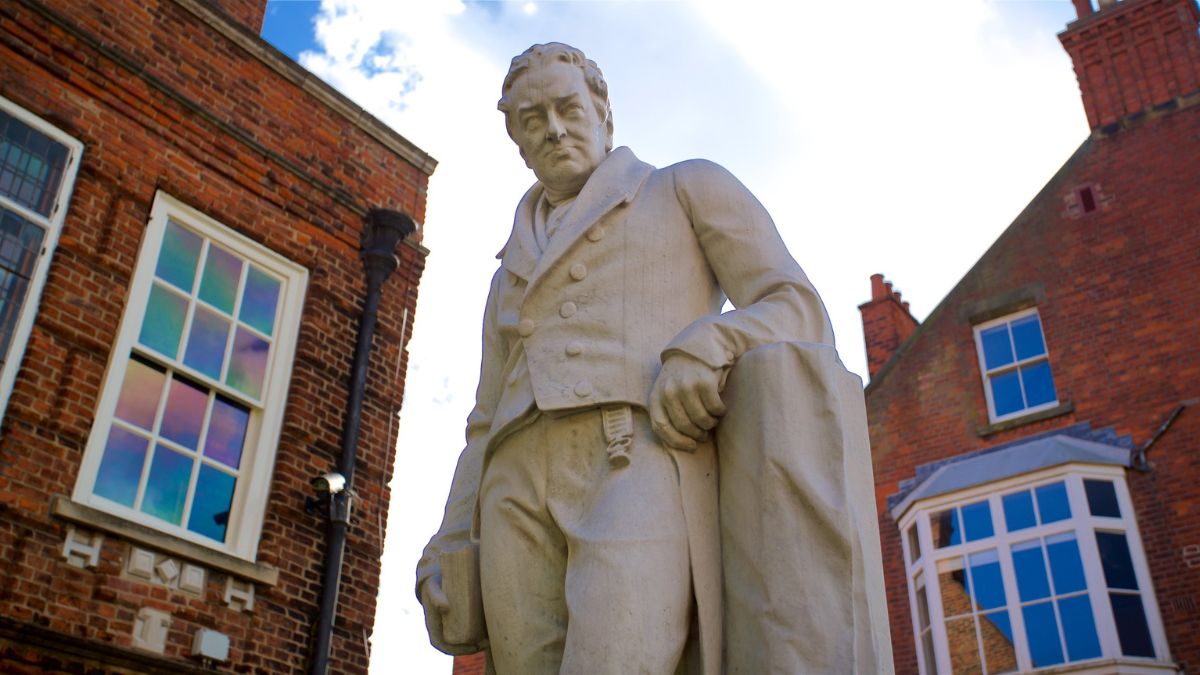


Unfolding in the distant future, Sharon Cameron’s “Rook” is set in a world that, many centuries ago, was all but destroyed by polar shifts. The world plummeted into another dark age and, as time passed and countries and cultures started to re-emerge, history began to repeat itself. The one main difference is that, in this new, old world, any advancements in technology are scorned, feared, and forbidden. The technology of “The Ancients” is blamed for the destruction of the world so many centuries ago, and considered dangerous.
Eighteen-year-old Sophia Bellamy lives with her brother, Tom, and their ailing father in The Commonwealth. In the land that used to be known as England, more and more members of the shrinking upper class are driven into poverty as land and business laws and taxes become increasingly stringent. Meanwhile, across the sea, the Sunken City — once known as Paris — is in the throes of political upheaval and revolution, the cliffs seeming to echo with the voices and sounds of the French Revolution from long ago.
As the world around her is falling apart, Sophia’s chance for a personal future of her choosing is also destroyed when her father arranges a marriage for her to René Hasard. His family fortune could save the Bellamys from ruin, but his arrogance and buffoonery prove endlessly exasperating for smart, pragmatic, and resourceful Sophia.
Driven as much by personal frustration and boredom as by political rebellion, Sophia dons a false identity and becomes the Red Rook, the key player in a group of conspirators who sneak political prisoners out of the Sunken City and into the Commonwealth, saving them from death and enabling them to start new lives. The Rook becomes a symbol of hope and freedom to members of the Upper City who are being mercilessly and unjustly imprisoned by the bloodthirsty Ministre of Security. A man driven by his fanatic, ritualistic worship of the goddess Fate, LeBlanc is as determined to catch and kill the Red Rook as she is to topple his prison and destroy his plans.
If it sounds like there’s a lot going on in “Rook,” it’s because there is. This dystopian novel reads more like historical romantic fiction. Admittedly an homage to “The Scarlet Pimpernel” by Baroness Emmuska Orczy, “Rook” seems to exist in an incongruent world. One moment characters are traveling in stage coaches, riding horses, and having swordfights; the next they are contemplating the original use of plastic “artifacts” like soda bottles and CDs, wondering how gunpowder was used, and mystified as to why people would want to use clocks to tell time.
But perhaps an incongruent world is part of the point. Power can always corrupt, but in a world shaped by personal uncertainty, ruled by political instability, and overshadowed by idolatry, life is anything but harmonious and consistent. Using the past as a template, Cameron has crafted a future that abhors technology and honors fate, creating a society that is repeating the mistakes of history due to shortsightedness and superstition.
Along with power and our inability to learn from the past, love and family, social and economic inequality, the role of religion in society, and duty versus desire are all themes touched upon in “Rook.” Fate versus personal choice and responsibility is also discussed. To paraphrase René (spoiler alert!), some things may be meant to happen, but depending on our choices, they might never happen at all.
This is an especially interesting theme for Christians, whose views on destiny and choice are influenced by our understanding of God’s will. While I don’t think “Rook” discusses the issue in a particularly deep way, it does highlight it in an entertaining fashion, which could still make it a conversation starter with teens. Refreshingly free of teen angst, vampires, and zombies, “Rook” may be a good read for young people grappling with the bigness of life, the unknowns of the future, and how they fit into it all. Additionally, it offers a creative response in the form of determined, proactive protagonists to a culture that increasingly tells us we are owed the things we want and should expect them to come our way, regardless of our own efforts or actions.
While “Rook” is a page-turner, it felt somewhat crowded with too many ideas, and both the style and plot points felt a bit heavyhanded at times. I also wasn’t completely sympathetic to Sophia, as I didn’t find her outwitting of the entire French government well-earned, either through her personal backstory or present circumstances. While the attention given to Sophia’s conflicting love interests does make it feel a bit like a romance novel at times, there are only three scenes with detailed physical intimacy, and in these, sex is not clearly implied. There is no explicit modern-day bad language, but cursing is implied and some crude language is used. There is quite a bit of time devoted to the development of Ministre LeBlanc’s worship and resulting rituals towards Fate and Luck. Any parents who might find exposure to idolatry or pagan-esque practices inappropriate for their children will want to take that into consideration.
But overall, I found “Rook” a unique and lively read that was a welcome change from much current Young Adult fiction characterized by dark themes, dark worlds, and excessive navel-gazing.
Image copyright Scholastic Press. Review copy obtained from the reviewer’s local library.
Annie Provencher is a writer in northern Virginia.
Have a Follow-up Question?
Want to dig deeper?
If you want to challenge yourself as many others have done, sign up below.
Webinars
Short Courses
Up
Next














